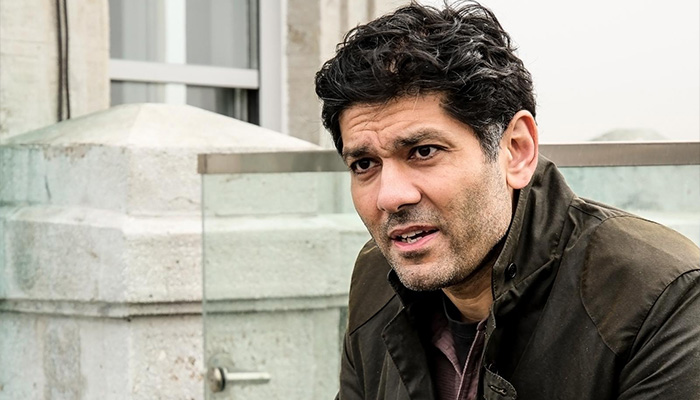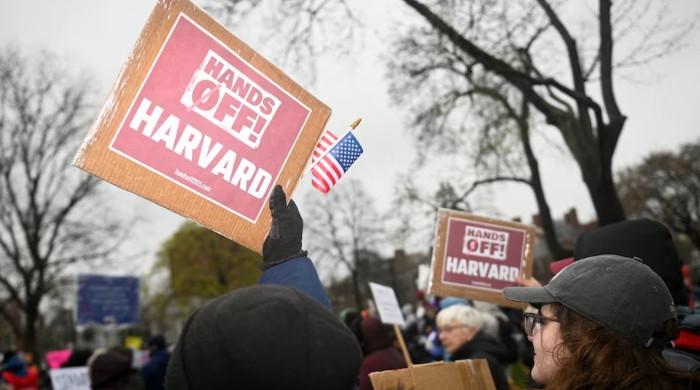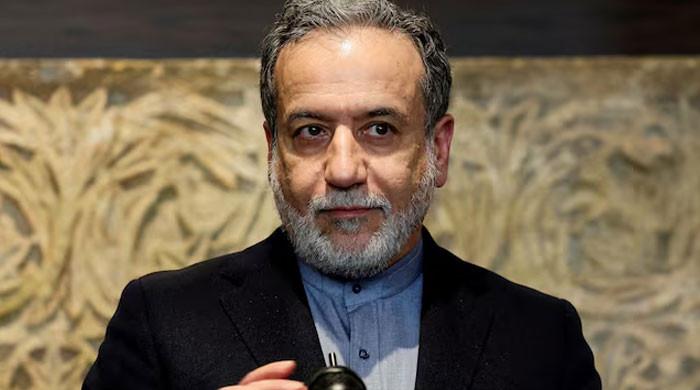British-Pakistani's book focuses on Muslims in the West
One of the key themes of Dr Qureshi’s book is equipping Muslims with better tools to challenge Islamophobia in the West
April 21, 2024

LONDON: A British-born Pakistani Dr Saqib Iqbal Qureshi has published a book with focus on Muslim voices in the West being stifled and punished for their advocacy of Palestinian rights to life.
Dr Qureshi’s booked titled “Being Muslim Today: Reclaiming the Faith from Orthodoxy and Islamophobia” is published at a poignant time for the Muslims in the West and does not hold back one bit.
One of the key themes of the book is equipping Muslims with better tools to challenge the Islamophobia in the West. Dr Qureshi’s fellowship at the London School of Economics, where he also completed both his undergraduate and PhD degrees, and his work at The Financial Times and McKinsey & Co have bestowed on him unusual credentials, and a platform to have his voice heard.
Islamophobia manifests in many ways, including the idea that Muslims are violent – a point that does not rest easily with him. He told Geo News: “I am fed up with younger generations of Muslims in the UK and elsewhere starting life on the defensive. Islam is not a violent religion. Muslims are not violent. Ours is not a violent history. We don’t have fingerprints on any of the worst genocides in human history, yet our kids are growing up on the defensive. We need to get our argument across.”
Amongst the many factoids in his book, packed with more than a thousand source notes, is that during the Crusades, King Richard I killed 3,000 innocent civilians in one day in August 1191, which is the same number that Osama bin Laden killed on September 11th. “The difference is that we made Osama a public enemy but put a large statue of Richard I on horseback on the grounds of the British Parliament. How do we reconcile this? Both were mass murderers.” he asks.
He adds: “This is true – Richard I is venerated. He featured as a good king in Disney’s classic ‘Robin Hood’ animation movie of 1973. Yet he committed atrocities. Even if questioning him lends into Woke culture and politics which has surfaced in the last decade, how can we vilify one mass murder but applaud another? You might say that this is all in the past, but ‘Being Muslim Today’ is not a history book.”
It spotlights the reality that the homicide per capita rate in Muslim majority countries is lower than that of non-Muslim majority countries. “How is it that we get called violent when we commit fewer murders?”
His book reveals that this data is remarkably encouraging given that violence in Muslim majority-countries is often because of weaker foreign political systems which were dumped onto the Muslim world after colonial powers left. He says: “Despite having brittle, vulnerable political systems, the sort that lead to civil wars and political instability, Muslims should feel proud that culturally we’re still a pretty non-violent lot.”
At the same time, despite challenging the West to hold a mirror to its own violence, ‘Being Muslim Today’ insists that it’s hard to separate the West from Islam. “The two simply learned and borrowed so much from each other that splitting them is a bit silly.”
His book explains for instance how Islam borrowed from Judaism, which then borrowed from Islam. The book also touches upon how most of the important cathedrals in the West copied Syrian mosques – the church tower came from the minaret. Much of the design of Sir Christopher Wren’s St Paul’s Cathedral is Islamic, which he himself acknowledged.











